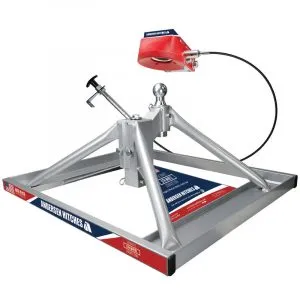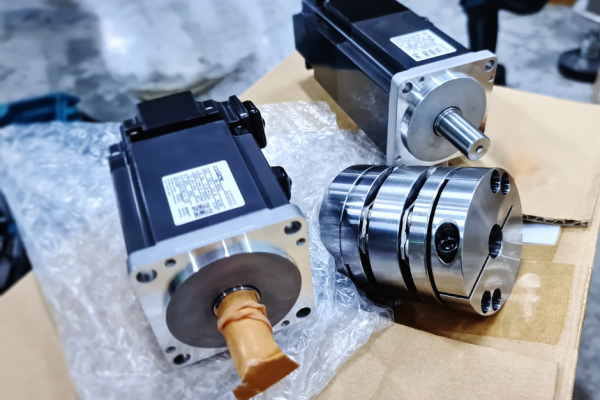As a car enthusiast, have you ever wondered how nuts and bolts are named in the automotive world? The naming conventions may seem like a foreign language, but understanding them is essential for anyone who works on cars, in the automotive sector or for those who need to order replacement parts.
In this blog post, we’ll explore the different types of bolts and nuts used in automobiles, many supplied by Agrati, a leading company in the fastener industry, and how they are named.
Types of Bolts and Nuts
Before I tell you about naming conventions, let’s first take a look at the different types of bolts used in the automotive industry. Hex bolts, carriage bolts, flange bolts, and stud bolts are some of the most common types of bolts. Each of these bolts has a specific purpose, and understanding their differences is crucial for selecting the right one for the job.
Similarly, there are several types of nuts, including hex nuts, flange nuts, nylon lock nuts, and jam nuts. Each type of nut serves a different purpose and has a unique design.
Naming Conventions for Bolts
Now that you know the different types of bolts and nuts used in automobiles, let’s explore the naming conventions for bolts. Bolts are typically named using three main parameters: thread pitch, diameter, and length.
Thread pitch refers to the distance between two threads and is measured in millimeters. The diameter is the width of the bolt’s shank and is also measured in millimeters. The length of the bolt is measured from the top of the head to the tip of the bolt.
For example, if a bolt has a thread pitch of 1.25mm, a diameter of 8mm, and a length of 20mm, it would be named “M8 x 1.25 x 20mm.” Similarly, a bolt with a diameter of 1/2 inch, a thread pitch of 20 threads per inch, and a length of 1 inch would be named “1/2″-20 x 1.”
Naming Conventions for Nuts
Just like bolts, nuts are also named using thread pitch, diameter, and type of nut. The type of nut refers to the nut’s design and can be a hex nut, flange nut, nylon lock nut, or jam nut.
For example, if a nut has a thread pitch of 1.25mm and a diameter of 8mm and is a hex nut, it would be named “M8 x 1.25 hex nut.” Similarly, a 1/2 inch nut with a thread pitch of 20 threads per inch and a nylon insert to prevent loosening would be named “1/2″-20 nylon lock nut.”
Why They’re Important
Nuts and bolts are the backbone of every automotive system. These essential components hold different parts of a car together, ensuring that it functions optimally. From the engine, transmission, suspension, wheels, and body, nuts and bolts play a critical role in preserving the car and maintaining its structural integrity.
Apart from holding the car together, nuts and bolts also play an important role in ensuring that the car runs smoothly. For example, the right bolts ensure that the car’s wheels are properly aligned, leading to a smoother ride, better fuel economy, and reduced wear and tear on tires.
One critical aspect of using nuts and bolts in the automotive industry is selecting the right type of fastener for the job. For instance, using a fastener that’s too small or too big could result in parts that are not firmly secured, which could cause vibration, looseness, and potentially lead to failure. Similarly, using a fastener that is not designed for the specific application could lead to overtightening, which can damage the threads, weaken the material, and lead to failure over time.
Furthermore, the correct torque settings are essential to ensure that the nuts and bolts are tightened to the right amount of force. Tightening too much or too little can cause serious problems. For example, over-tightening can cause the bolts to shear or break, and under-tightening can cause parts to vibrate or come loose.
Using quality nuts and bolts is equally important to maintain the safety and reliability of the car. Quality fasteners are made to withstand and resist damage from heat and vibration, ensuring that they remain secure for longer. This reduces the risk of accidents and the need for frequent repairs or replacements.
How They’re Manufactured
Nuts and bolts are typically manufactured using high-quality materials such as steel, stainless steel, and titanium. The manufacturing process involves several stages, including material selection, forging, threading, and finishing.
The first step in manufacturing nuts and bolts is selecting the right components. The choice of material depends on several factors, including the application, the level of strength required, and the environment in which they will be used. Steel is the most commonly used material due to its durability and cost-effectiveness.
Once the material has been selected, the next step is forging. Forging involves heating the metal to a specific temperature and then shaping it into the desired shape using a die or hammer. This process creates a strong and durable product with a high level of accuracy and consistency.
After forging, the bolts and nuts are then threaded to allow them to be screwed onto other parts of the car. Threading is usually done using a machine that cuts the threads into the bolts or nuts. This process ensures that the threads are accurate and consistent, which is essential for a tight fit.
The finishing process involves treating the nuts and bolts to improve their durability and appearance. For instance, bolts and nuts may be coated with a protective layer of zinc, nickel, or chrome to prevent rust and corrosion. Additionally, they may be polished or painted to improve their appearance.
Overall, the manufacturing process for nuts and bolts is complex and requires careful attention to detail to produce high-quality fasteners that can withstand the harsh conditions of the automotive industry. By using quality materials and adhering to strict manufacturing standards – like Agrati does – nuts and bolts will be strong, reliable, and long-lasting products.
Understanding the naming conventions for nuts and bolts in automotive terminology is crucial for anyone who works in this industry.
Now that you know all about this topic, you’ll be able to select the right nuts and bolts for your company. Contact Agrati for the purchase of high quality products.





